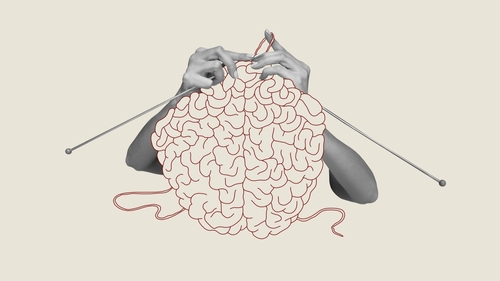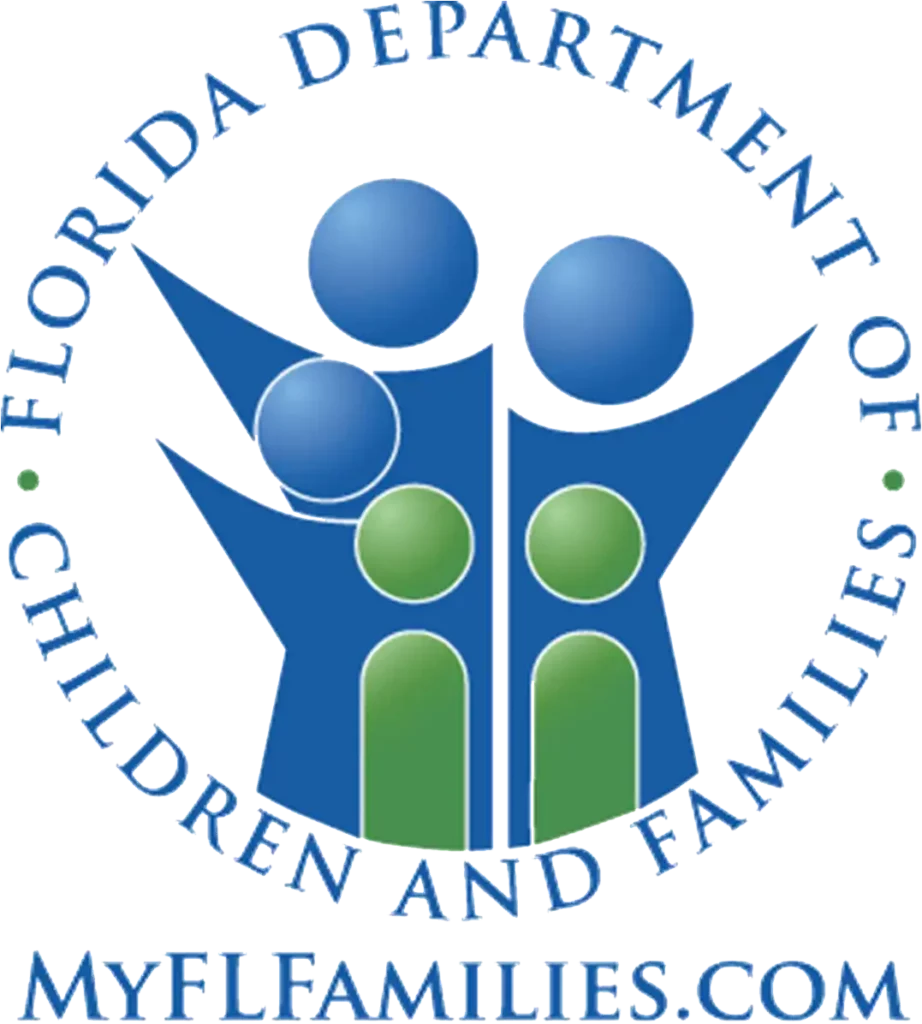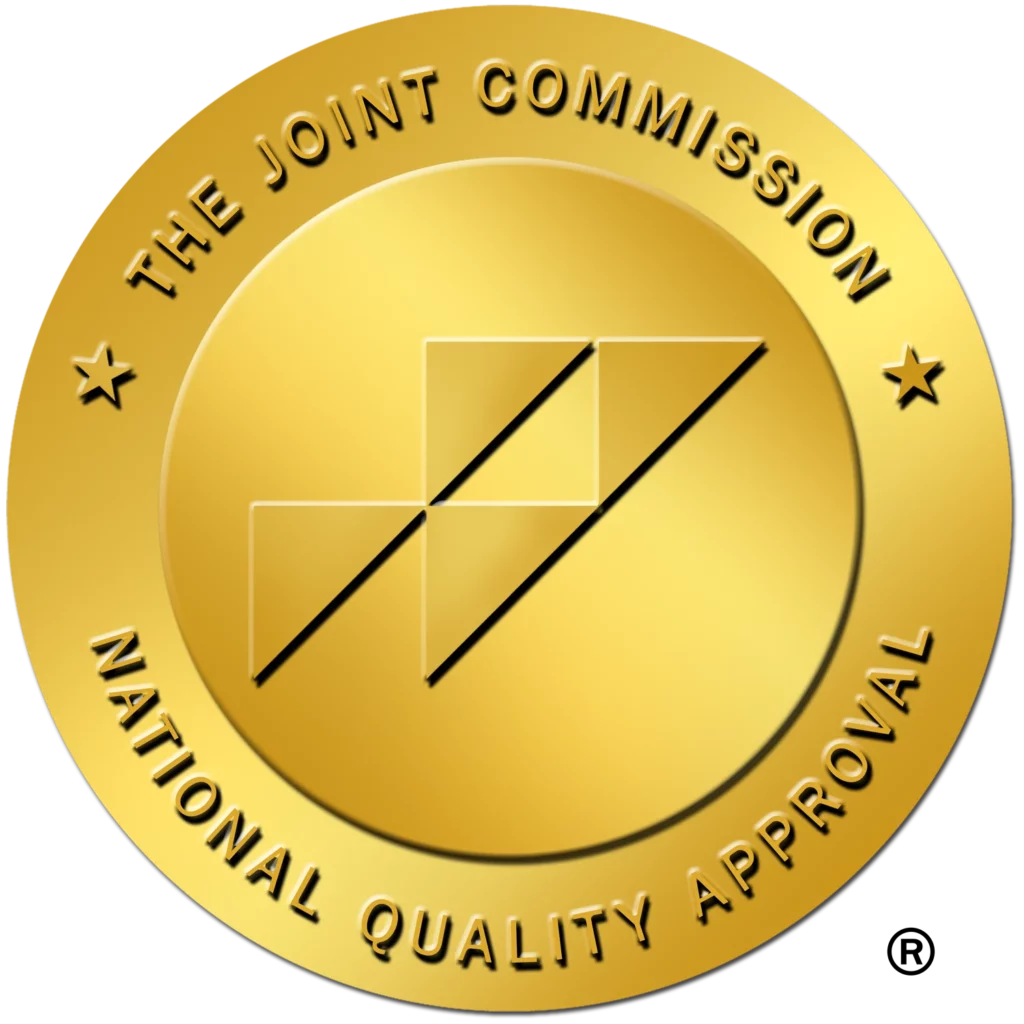Exploring the Link Between Substance Abuse and Mental Health
This entry was posted in Addiction Recovery, Mental Health and tagged Addiction, mental health on January 04, 2024 by Justin Baksh, MS, LMHC, MCAP, Chief Clinical Officer.

More often than not, the issues of substance abuse and mental health are intertwined,
impacting individuals, families, and communities. It’s vital that we look at the critical
relationship between substance abuse and mental health, through a lens of empathy and
understanding, if we want to break the stigma and promote education.
As of 2021, 7.6% of U.S. adults experienced co-occurring substance use disorder and mental
illness, which translates to about 19.4 million people.
Additionally, it’s noteworthy that only 10% of all adults with co-occurring disorders received
treatment for both conditions in the past year.
These issues are not isolated. They ripple through families, workplaces, and communities,
leading to widespread social and economic impacts.
Mental health disorders, from common conditions like depression and anxiety to more severe
cases like schizophrenia, touch the lives of millions. Similarly, substance abuse, including the
misuse of alcohol, prescription drugs, and illegal substances, is a widespread concern. The
overlap between these two areas is substantial, with many individuals experiencing both.
These challenges can have a heavy impact on society. They can strain healthcare systems,
increase healthcare costs, and lead to a loss in workplace productivity. Moreover, they often
contribute to social problems like homelessness and criminal activities. The emotional toll on
families and communities is equally significant, as they often bear the burden of supporting
affected individuals.
What is Substance Abuse?
Substance abuse is the use of substances like alcohol and illicit drugs in harmful or unsafe
ways. There is often a pattern of use involved that can lead to serious problems and
consequences. Key symptoms of substance abuse include the ongoing use despite negative
consequences, higher tolerance to the substance over time, and withdrawal symptoms when
not using. This behavior can disrupt a person’s life, harming their ability to function in
relationships and their work, and impacting their overall health.
What do we mean by mental health?
Our emotional, psychological, and social wellness is what we mean when we refer to our
mental health. It influences our thinking, emotions, and behavior, and it’s key in how we cope
with stress, build relationships, and make decisions. Good mental health does not just mean
the lack of mental illnesses. It also encompasses maintaining a stable and balanced state of
emotions and psychology. Conditions like depression, anxiety, and bipolar disorder, among
others, are characterized by alterations in thought processes, emotions, and actions, often
impeding a person’s ability to function normally in daily life. Frequently, substance abuse can
be a manifestation or a method of coping with mental health challenges. Additionally, mental
health conditions can be triggered or aggravated by extended substance abuse.
How are substance abuse and mental health linked?
The link between substance abuse and mental health issues is complicated and involves
various factors. Substance use can lead to new mental health issues or worsen existing ones,
and mental health issues can lead a person into substance abuse.
Substance Use Impacts on Mental Health
Substance use can impact mental health in several negative ways. When a person consistently
abuses substances, it can alter the brain’s chemistry and functioning, potentially leading to the
development of mental health issues. For example, regular use of certain drugs can change the
brain’s reward system, increasing the risk of disorders like depression or anxiety.
Substance abuse can also make pre-existing mental health conditions worse. If someone has a
predisposition to mental health issues, the use of substances can trigger symptoms or make
them more severe. Neurotransmitters in the brain, which are crucial for mood regulation and
well-being, can be thrown off-balance by many common substances.
Additionally, the lifestyle associated with substance abuse can contribute to the development
of mental health disorders. This can include increased stress from relationship problems, legal
issues, or financial instability, all of which can have a significant impact on a person’s mental
health.
Mental Health Issues and Substance Abuse
Mental health problems can sometimes drive people to drink or use drugs, hoping this will
help them cope with their mental health symptoms. For instance, someone suffering from
anxiety or depression might use these substances to temporarily relieve their distress or to
self-medicate their problems.
The problem with this is that, while substances might provide short-term relief, they can
worsen mental health symptoms in the long run. For example, alcohol, a depressant, can
deepen depressive symptoms over time. Similarly, the after-effects of some drugs can make
anxiety and other mental health issues worse.
Moreover, the lifestyle changes and stressors that come with substance abuse, such as
relationship problems, financial strain, or legal issues, can further aggravate existing mental
health conditions. This creates a vicious cycle where mental health issues lead to substance
abuse, which then worsens the mental health condition, potentially leading to even more
substance abuse.
The Overlapping Struggles
The mental health disorders that are most often associated with substance abuse include:
Depression
Characterized by ongoing feelings of sadness, loss of desire to participate in activities that
once brought joy, and feelings of hopelessness, depression can lead individuals to abuse
substances as a form of self-medication.
Anxiety Disorders
People who suffer from generalized anxiety disorder, panic disorder, and social anxiety
disorder, experience excessive worry or fear, and may turn to drugs, alcohol or other
substances to calm their nerves or alleviate their anxiety symptoms.
Bipolar Disorder
This disorder causes severe mood swings that range from depressive lows to manic highs.
Substance abuse in bipolar disorder can be a coping mechanism for these extreme mood
variations.
Post-Traumatic Stress Disorder (PTSD)
If a person experiences or witnesses a traumatic event, it can trigger PTSD and bring on
emotional pain and symptoms like flashbacks and nightmares. People with PTSD may turn to
substance abuse to manage their symptoms.
Schizophrenia
Schizophrenia is a serious mental condition marked by altered thinking, perception,
emotional responses, language, self-identity, and behaviors. Substance abuse in schizophrenia
might be used as a way to self-medicate or as a response to social and environmental factors.
Attention-Deficit/Hyperactivity Disorder (ADHD)
The hallmarks of ADHD include attentional deficits, hyperactive behaviors, and a tendency
towards impulsiveness. Individuals with ADHD may abuse substances as a way to manage
their symptoms or due to impulsive behaviors associated with the disorder.
Psychological and Physical Overlaps
The psychological and physical overlaps between mental health disorders and substance
abuse are important to understand. Psychologically, both can share common symptoms such
as mood swings, anxiety, depression, and changes in behavior. For instance, someone with a
mental health disorder like depression may experience similar feelings of hopelessness and
low mood that are also common in substance abuse.
Physically, both substance abuse and mental health disorders can lead to changes in the
brain’s chemistry and structure. Substance abuse, for example, can alter the brain’s reward
system, leading to a dependency on the substance, which is similar to certain mental health
conditions that also involve imbalances in brain chemicals.
Both problems can impact physical health. Substance abuse can lead to a range of health
issues, from liver damage to heart problems, which can make the physical symptoms of a
mental health disorder much worse. Similarly, the physical manifestations of some mental
health conditions, such as the fatigue of depression or the agitation of anxiety disorders, can
be intensified by substance abuse.
This overlap makes treating both mental health and substance abuse issues together a vital
part pf treatment, since addressing one without the other can lead to incomplete recovery and
a higher risk of relapse.
The Importance of Simultaneous Treatment
Treating substance abuse and mental health issues separately can lead to a few problems.
When only one condition is treated, the untreated issue will continue to cause problems that
can interfere with the person’s recovery. If we treat substance abuse without addressing an
underlying mental health disorder like depression, it can lead to a higher risk of relapse. The
person will still have to deal with the depressive symptoms that led them to use substances
use in the first place.
Separate treatments can also overlook the ways these conditions affect each other and the
person in recovery. Many of the coping strategies and treatments for substance abuse can be
less effective if a co-occurring mental health issue is not also being addressed. This is because
the symptoms of mental health disorders can complicate or interfere with the treatment of
substance abuse, and vice versa.
Finally, treating these conditions separately often leads to fragmented care, where the person
is receiving treatment from different providers who may not be communicating with each
other. This disjointed approach can result in inconsistent care and conflicting treatment
plans, which can make it harder for the individual to make or sustain solid progress.
When treatment is integrated, there’s a unified plan that addresses all aspects of a person’s
health. All the treatment is tailored to individual needs. Each person’s experience with
substance abuse and mental health is unique. Even two people who suffer from depression
and abuse alcohol can have a very different experience. It’s vital to allow for personalized
treatment plans that consider the details of an individual’s situation, including their history,
the severity of their conditions, and their personal strengths and challenges.
This way, all therapy can work in harmony to help move the recovery journey forward.
Holistic Care
Holistic care in integrated treatment is about caring for the whole person, not just their
symptoms or disorders. This includes addressing lifestyle factors such as diet, exercise, sleep,
and social connections, which play a crucial role in overall well-being. Holistic care also
involves supporting other areas of life affected by substance abuse and mental health, like
relationships, employment, and legal issues. An integrated treatment approach that includes
holistic care is far more effective for a person struggling with mental health and substance
issues, and often leads to a better outcome for them, their loved ones, and those around them.
Breaking the Stigma
Breaking the stigma around substance use and mental health issues is crucial in creating a
more compassionate society that encourages individuals to seek help, improves access to care,
and enhances overall support for those affected.
Stigma often makes people ashamed and embarrassed, and may keep them from seeking the
help they need. When people feel judged or misunderstood because of their struggles, they are
less likely to reach out for support or seek treatment.
Reducing stigma also fosters a more supportive and understanding community environment.
This can lead to better social support for those struggling, which is an important factor in
recovery. When society views mental health and substance use issues with empathy and
understanding, it creates a safer space for individuals to share their experiences and seek help.
Breaking the stigma can also lead to better funding and resources for mental health and
substance abuse services. When these issues are viewed as legitimate and important health
concerns, there is more incentive for governments and organizations to provide funding and
other resources toward effective treatment and prevention programs.
The Importance of Early Intervention
Early intervention in the case of substance abuse and mental health is extremely important.
Addressing these issues early on can vastly improve the chances of successful treatment and
recovery. When these conditions are identified and treated at an early stage, it can keep them
from getting worse and becoming harder to treat later.
Early intervention can also limit the impact of substance abuse and mental health issues on an
individual’s life. It can help preserve important relationships, educational and career
opportunities, and overall quality of life. Early treatment can head off some of the possible
negative consequences, such as legal issues, financial problems, and worsening health
conditions. Intervening early can also reduce the risk of developing new health problems. For
instance, early treatment of a mental health issue can decrease the likelihood of turning to
substance abuse as a coping mechanism.
Education and Prevention
The best way to handle substance abuse is preventing it, whenever and wherever we can.
Education is one of the best ways we can do this.
School and Community-Based Programs
These programs play a crucial role in addressing substance abuse and mental health issues. By
offering education and resources to students and community members, they increase
awareness about the risks and signs of substance abuse and mental health disorders. They
provide valuable information on where to find help and support, and often include activities
that promote healthy behaviors and decision-making. In schools, such programs can be
integrated into the curriculum, offering students a safe space to learn and discuss these
important topics. Community-based programs extend this reach, involving families, local
organizations, and community leaders in creating a supportive network that fosters mental
wellness and discourages substance abuse.
Role of Healthcare Professionals
Healthcare professionals are at the front lines in the battle against substance abuse and
mental health disorders. Their role involves not just treating these conditions, but also
educating patients about prevention and early intervention. Through regular screenings and
consultations, they can identify signs of substance abuse or mental health issues early on,
providing timely interventions. Healthcare professionals also have a responsibility to dispel
myths and reduce stigma around these conditions, making sure patients feel comfortable
seeking help. Their guidance can be instrumental in helping people adopt healthier lifestyles,
understand the importance of mental health, and access necessary resources and support.
Risk Factors
One key way to prevent substance abuse and mental health issues is to identify and address
potential risk factors. These can include genetic predispositions, environmental factors such
as exposure to trauma or high-stress environments, and social factors like peer pressure or
social isolation. By recognizing these risks early, individuals, families, and healthcare
providers can take proactive steps to reduce them. This might involve counseling, community
support programs, or interventions designed to change harmful conditions.
Building Resilience and Promoting Healthy Coping Mechanisms
Another effective prevention strategy is building resilience and teaching healthy ways to cope.
Resilience is the mental and emotional ability to handle stress and difficult situations. This
can be fostered through programs that teach problem-solving skills, emotional regulation, and
positive thinking. Promoting healthy coping mechanisms, like meditation, hobbies or exercise,
is also crucial. These practices can provide individuals with constructive ways to manage
stress and emotions, reducing the likelihood of turning to substances or developing mental
health issues.
Working these strategies into education, healthcare, and community programs can go a long
way in the prevention of substance abuse and mental health issues.
Embracing Hope and Seeking Treatment
The challenges of facing substance abuse and mental health issues together can be daunting,
but there is always hope and a path forward. Understanding the connection between these
issues is the first step on the path of recovery.
If you or someone you know is struggling with substance abuse or mental health issues,
remember that seeking treatment is a sign of strength, not weakness. There are good
resources available, with the right support and care, to make recovery possible. Treatment can
help you on the road to a better quality of life, stronger relationships, and a new, stronger
sense of purpose.
We want everyone to make their mental well-being a high priority on their mental well-being
and to promptly seek help when needed. Breaking the stigma and embracing treatment can be
life-changing. Remember, taking the first step and getting help is a courageous move towards
a brighter, healthier future.









